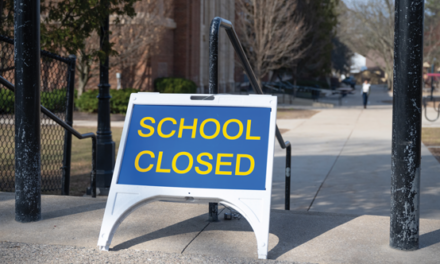Two countries confronting worries about jobs and immigration see solutions tied to education.
A brief vacation in London earlier this year gave me the opportunity to chat with some education counterparts who, like me, bridge the academic and policy worlds. The timing of my visit made for much mutual commiserating. Like the U.S., the United Kingdom’s government and culture have experienced a dramatic turn of the tide. Last year’s vote to leave the European Union and the election of Conservative Prime Minister Theresa May have shocked and divided the country.
As with President Trump, Theresa May’s government will focus on starkly different goals than those of her predecessor, David Cameron. In addition to the economic changes of a post-Brexit U.K., there are signs of social change as well. May’s Conservative Party rode to office on a wave of discontent not dissimilar to the one that carried Donald Trump to Washington. In Britain, too, immigration looms large, and, as in the U.S., many long for life as it used to be. (Taxi drivers were a font of information on this topic). Older citizens worry about jobs and fear that shifting demographics will change Britain forever, but the younger generation has always lived in a world in which the U.K. was part of the E.U. The disconnect between generations is profound, and U.K. voters made that clear when they elected May. Sound familiar?
In both countries, education trends and policies are shifting right along with public opinion. However, where the Every Student Succeeds Act is moving power and decision making down to state and local leaders across the U.S., authority over education has become increasingly centralized in Britain. For example, Prime Minister May’s plan for Brexit and her recent proposal to bring back Britain’s selective high schools (known in the U.K. as grammar schools and yes, very confusing for Americans) have stoked anxiety among students, faculty, and many education policymakers. How will leaving the E.U. affect British citizens who have enjoyed the freedom to live, work, or study in Europe? How will Brexit limit the ability of international students to study in the U.K.? More restrictive immigration policies are also adding to their concern. Britain has long been a magnet for the world’s best and brightest students and scholars, but some fear that it will become intellectually isolated and stagnant compared to other European nations.
Selective high schools
The grammar school controversy focuses on the selective high schools that were once a key part of the British government-funded education system. Students tested into these schools, and those who made the grade (almost always the wealthier and more privileged students) were set on a path toward university. Those who did not were directed toward vocational schools or other lesser high schools. For past Labor governments and many liberal-minded Brits, moving away from these selective high schools signaled progress toward a more equitable education system. (NCEE’s Marc Tucker recently wrote a thoughtful piece on this subject: http://ncee.org/2017/01/theresa-may-and-the-design-of-the-american-education-system/)
But Prime Minister May is now proposing a return to the grammar schools, promising that admission to the schools will become more fair. However, I’m told there is little support for this proposal among most educators, policymakers, and the media. Resurrecting the old system represents a step backward and won’t serve students or communities in any meaningful way, according to my conversations. This controversy is strikingly similar to the ongoing U.S. dialogue about equity and education. In both countries, immigration, poverty, and growing inequality have challenged public schools, and policymakers are searching for new strategies to help close the gaps. Unfortunately, looking backward rarely supports moving forward. Whatever happens as a result of May’s proposal, though, she certainly has got people talking. The discussions around grammar schools were among the most animated of all my conversations.
Once I was able to keep the grammar school/high school thing straight in my head, I was able to ask some specific questions about college- and career-readiness. I wanted to learn more about current attitudes toward career-readiness and whether British schools are emphasizing skills and competencies that go beyond traditional academic study. No matter where you live, the 21st century requires a more robust secondary education system with multiple pathways that allow students to pursue an education that fits their interests and abilities. The labor market and workforce needs continue to change in both the U.S. and the U.K., and economic imperatives demand a workforce with diverse knowledge and skills. The British elite, however, still have a bias against any form of career or vocational training, so pursuing such a pathway in secondary school would still be considered a lesser choice. Well-to-do parents will push their children toward university no matter what.
To illustrate how Americans feel about some of these issues, I shared results from the 2016 PDK Poll of the Public’s Attitudes Toward the Public Schools. The Brits were surprised to learn that less than half of the respondents said the main goal of public education should be to prepare students academically, while 25% said it should be to prepare students for work. While the public may have a fairly nuanced view of the purpose of public education, I told them the policy world has some catching up to do.
Trumpian education
Finally, they asked plenty of questions about what education will look like during the Trump administration. The Brits have their own version of the charter/choice debate, so they were curious as to whether the Trump administration will be able to significantly influence the structure of U.S. public schools. Non-American education experts are always surprised to learn how much local control dominates U.S. public education, so I gave them the lowdown on state and local leadership vs. the power of the presidential bully pulpit. They were more fascinated to learn that Congress had passed ESSA with the intention of limiting the power of a would-be President Clinton’s secretary of education — which will now limit the power of Trump’s secretary of education. This is what passes for intrigue in the education space.
The concerns facing educators and policymakers in the U.K. are so similar to those in the U.S. right now — both countries clearly have a lot to learn from one another. It turns out that life in a post-E.U. Britain represents a shift so seismic that only an American who just lived through election 2016 could relate.
Citation: Ferguson, M. (2017). Big change on both sides of the pond. Phi Delta Kappan 98 (6), 72-73.
ABOUT THE AUTHOR

Maria Ferguson
Maria Ferguson is an education policy researcher, thought leader, and consultant based in Washington, DC.










